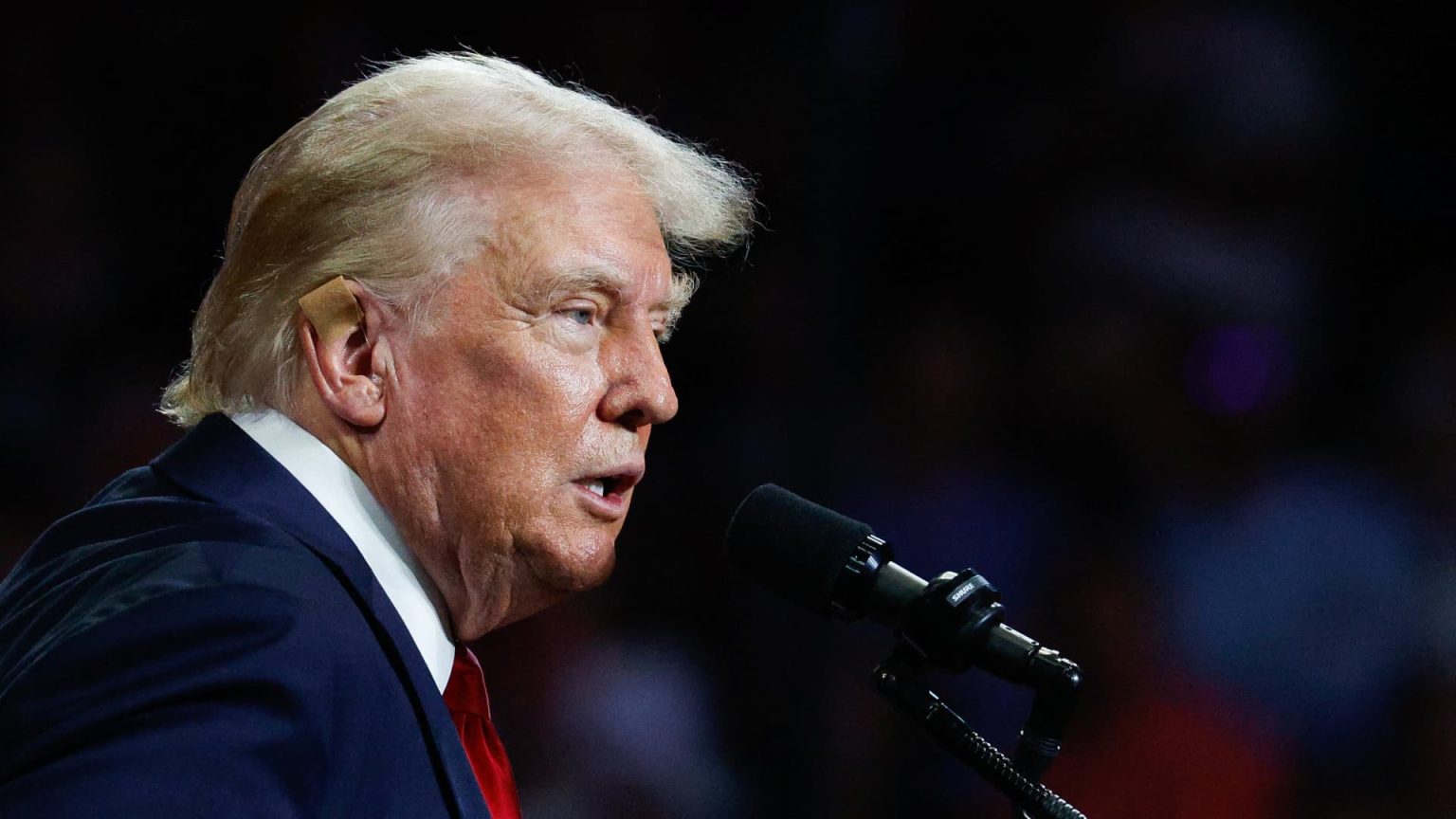During a keynote speech at the Bitcoin Conference in Nashville, former President Donald Trump expressed his intention to maintain the current level of bitcoin holdings that the U.S. government has, acquired from seizing assets from financial criminals. Trump emphasized the importance of never selling bitcoin and pledged that if elected, his administration would keep 100% of all the bitcoin the U.S. government holds or acquires in the future. This strategy of permanently holding bitcoin, regardless of market conditions, is endorsed within crypto circles but differs from the current U.S. approach of regularly auctioning off seized bitcoin and other cryptocurrencies.
During a closed-door round table held with donors prior to his speech, Trump indicated that he believed it would make sense for the government to hold bitcoin. The proposal was seen as less innovative than expected by some crypto enthusiasts and fell short of the more ambitious plan put forth by third-party presidential candidate Robert F. Kennedy Jr., who pledged to establish a 4 million bitcoin strategic reserve to match the country’s gold reserves. Kennedy’s proposal involved directing the U.S. Treasury to purchase 550 bitcoin each day, significantly impacting how the cryptocurrency is regulated and valued.
Following Trump’s speech, Sen. Cynthia Lummis of Wyoming announced her plans to introduce new legislation supporting a strategic bitcoin reserve. This legislation would involve assembling 1 million bitcoin over five years, amounting to five percent of the world’s total supply, to be held for a minimum of 20 years with the sole purpose of reducing the nation’s debt. Establishing such a reserve is seen as a way to fortify the dollar against inflation. While Trump’s pledge and similar legislative proposals support the idea of a bitcoin reserve, the practical implementation would require congressional approval and new legislation.
The funding for a bitcoin reserve would likely come from existing bitcoin assets that the U.S. government currently holds from confiscated sources, supplemented by regular additional purchases of bitcoin using taxpayer funds. Sen. Lummis’s proposed legislation indicates that the reserve would be financed through existing funds of the Treasury Department, which include tax revenue. Establishing such a reserve could potentially contribute to reducing the federal deficit over time, although it would require Republican dominance in the White House, Senate, and House following the 2024 elections.
A bitcoin reserve established by the U.S. government would grant the digital currency more legitimacy and could have a significant impact on its price and overall adoption. Bitcoin has already gained credibility with Wall Street’s growing acceptance and the listing of spot bitcoin exchange-traded funds on U.S. markets. However, the launch of a national bitcoin reserve would present a significant milestone for the relatively young digital currency, potentially driving up its price in the short term. The move could also inspire other countries to establish their own reserves, further boosting demand for bitcoin and driving its price higher.
As the debate around a U.S. bitcoin reserve intensifies, the implications for the digital currency’s future are significant. While there are logistical and legislative challenges to establishing such a reserve, the potential benefits include reducing the national debt, fortifying the dollar against inflation, and fostering greater adoption and legitimacy for bitcoin. Trump’s proposal and the subsequent legislative efforts signal a shift towards embracing bitcoin as a strategic asset, reflecting the growing influence of cryptocurrencies in the financial and political arenas.


